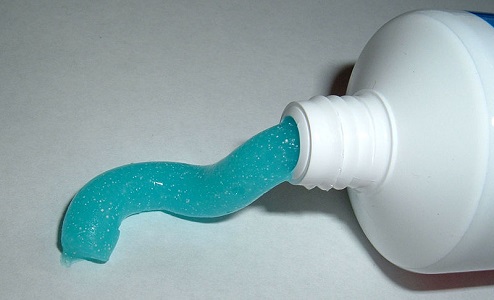
Chemicals in common day-to-day products such as toothpaste, sunscreen and soaps are linked to high levels of male infertility, according to a new research.
A chemical common to these three household goods was found to have direct effect in the potency of sperm cells by making sperms prematurely release enzymes that are required to penetrate and fertilize egg cells.
This is for the first time that the study has uncovered a direct link between male infertility and man-made chemicals, which the scientists believe will raise further concerns about the unknown toxicity in everyday items.
The study is expected to let regulatory bodies in Europe initiate restrictions or bans on the use of certain household products as chemicals are ingested by people in day-to-day life either by consuming food and drink or by intaking them through the skin by products such as soaps and sunscreens.
"For the first time we have shown a direct link between exposure to endocrine-disrupting chemicals from industrial products and adverse effects on human sperm function." TOI quoted Niels Skkakkebaek, of Copenhagen University Hospital in Denmark.
"In my opinion, our findings are clearly a concern as some endocrine-disrupting chemicals are possibly more dangerous than previously thought. However, it remains to be seen from forthcoming clinical studies whether our findings may explain reduced couple fertility which is very common in modern society," he added.
It is difficult to find one particular chemical in the human body fluids as complex chemical cocktails with different endocrine-disrupting chemicals are found in very low concentrations. The team of researchers mixed the chemical cocktail together in the lab, which resulted in large sized sperms. This showed that chemical complex mixtures hinders in the functioning of the sperms, which was not showed before, explained Timo Strunker of the Centre of Advanced European Studies and Research in Bonn, Germany and one among the researchers.
"This study appears to open up a new dimension of potential effects of common lifestyle or environmental chemicals on male fertility." said Richard Sharpe, a senior scientist at the Medical Research Council Human Reproductive Sciences Unit in Edinburgh.

















